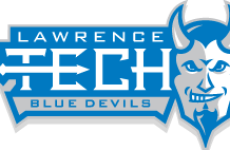Kyle Boyd always wanted to play football. Growing up in Texas, his heart was set on a Big 12 program, and by the time he had graduated from high school in 2011, five Division I football programs had offered him scholarships. Boyd ended up signing a national letter of intent with Baylor University, which was only about two hours south of his hometown, Mesquite.
But then, very suddenly, Boyd decided to put that dream of college football, a dream which was so quickly approaching reality, on hold—a month after signing with Baylor, he enlisted in the Marines. Of that abrupt transition, Boyd remarks, “Looking back on it now, I still think I’m crazy.” He wasn’t the only one. Boyd’s parents didn’t want him to enlist and to give up his scholarships, and his coaches didn’t understand why an outstanding athlete with such great potential had so suddenly veered off course. But the more people told him not to, the more Boyd felt determined to follow his new path. He felt a calling, and he wanted to make the decision for himself.
“I wanted to be a part of the nation’s fiercest force.”
Football would simply have to wait.
Baylor’s head coach at the time, Art Briles, was supportive of Boyd, stating in a press conference that while Baylor football was sad to see him go, the country was in good hands with Boyd. That encouragement meant a lot to Boyd, and once he swore in and went off to boot camp, his parents’ initial reservations were replaced with pride and support as well.
Boyd entered boot camp in March of 2012. He remembers the times in boot camp when he would question his decision:
“I’d think, what the heck am I doing? I could be in college playing football, and I’m sitting here at 3AM getting yelled at.”
But becoming a Marine was an invaluable experience for Boyd. He feels it matured him immensely, gave him perspective, and instilled a disciplined work ethic. Boyd was stationed in Hawaii, and he deployed twice. His unit had stopped deploying to Afghanistan only three months before he had joined. During his service, Boyd deployed to Australia, New Zealand, Japan, and South Korea, training their militaries in US combat tactics.
About a year into his contract, Boyd began to think about football again, but he was hesitant and unsure:
“I was afraid to fail. I hadn’t played in a couple of years by then. I thought, man, my body isn’t built for it any more, I don’t know if I can run any more, block, catch, hit.”
But if anything, Boyd is brave and determined, and in a single moment he laid out the truth and followed it: “if I want to be serious about this, I need to just go for it. I may not make it. It may not happen, but I have to try.”
In the third year of his contract, with about six months left of service, Boyd began to reach out to schools. He sent emails to several coaches, telling them of his story and of his military experience, and he sent out some high school film. He got one reply, and that was enough. It was Baylor University, and they would love to have him. Baylor could only offer a walk-on spot. He would have none of the scholarship support he once had, but that was no issue; he had the GI Bill to cover the cost.
After Boyd graduated from high school, he took some classes at Eastfield Community College in Dallas county while he waited to receive his contract, so when Boyd enrolled at Baylor in 2016, it was as an academic sophomore.
Even as a sophomore, with his years spent in service, Boyd is older than most of his peers. He even jokingly remarks that he is older than most of the teaching assistants. Boyd’s teammates frequently tease him about his age, calling him old man and grandpa. However, his experience from those years spent in service has proved invaluable to both Boyd and his teammates.
Boyd maintains that his military experience has helped him both in school and football, allowing him to carefully budget his time, successfully approach his school work, and not be phased by the grueling conditioning and practices that are a part of Division I football. As for his teammates, Boyd feels that they value his experiences.
“I can offer a different insight, add a little more wisdom because of where I have been and what I have done.”
As much as the military helped prepare Boyd for college football, football itself has always been there for Boyd, and upon exiting the military, his Baylor teammates offered that same brotherhood mentality.
“Football taught me the value of a team. I know the military is the same thing, but football, you know, it gives me an opportunity in life that I’m thankful I got a second chance at. Thankful for the guys that I play with.”
Boyd’s path is a remarkable one, and while his skill level is unique and his journey his own, he echoes the same mission as Athletes of Valor—playing college sports, especially college football, after the military is a tremendous opportunity and an achievable goal. Having gone through the process himself, Boyd has some recommendations for individuals on active duty hoping to play after service: Find buddies that can put you through drills to scrape off any rust and hone skills. Train for strength. Reach out to college coaches, and tell them your story, highlighting your experience as both an athlete and as a member of the military. Most of all, Boyd passionately stresses that you have to go for it.
“Don’t be afraid to fail. Don’t be afraid of opportunity. If you want to go play, go play. Don’t have that regret that you wanted to play, should have played, and didn’t. I almost did that. If there are any veterans out there who want to play, go for it. Even if you have doubts, you have to try. I was in the same position and you have to try. I’m glad I did.”
Boyd will graduate from Baylor in May of 2019. He is a valuable player for the Bears, both on the field as fullback and off the field as a leader. He majors in Management and hopes to go into federal law enforcement. His father has been a police officer for twenty-eight years, choosing to remain on patrol, to remain near the action, and Boyd seems to take after him. Unsurprisingly, he doesn’t see himself behind a desk any time soon.















